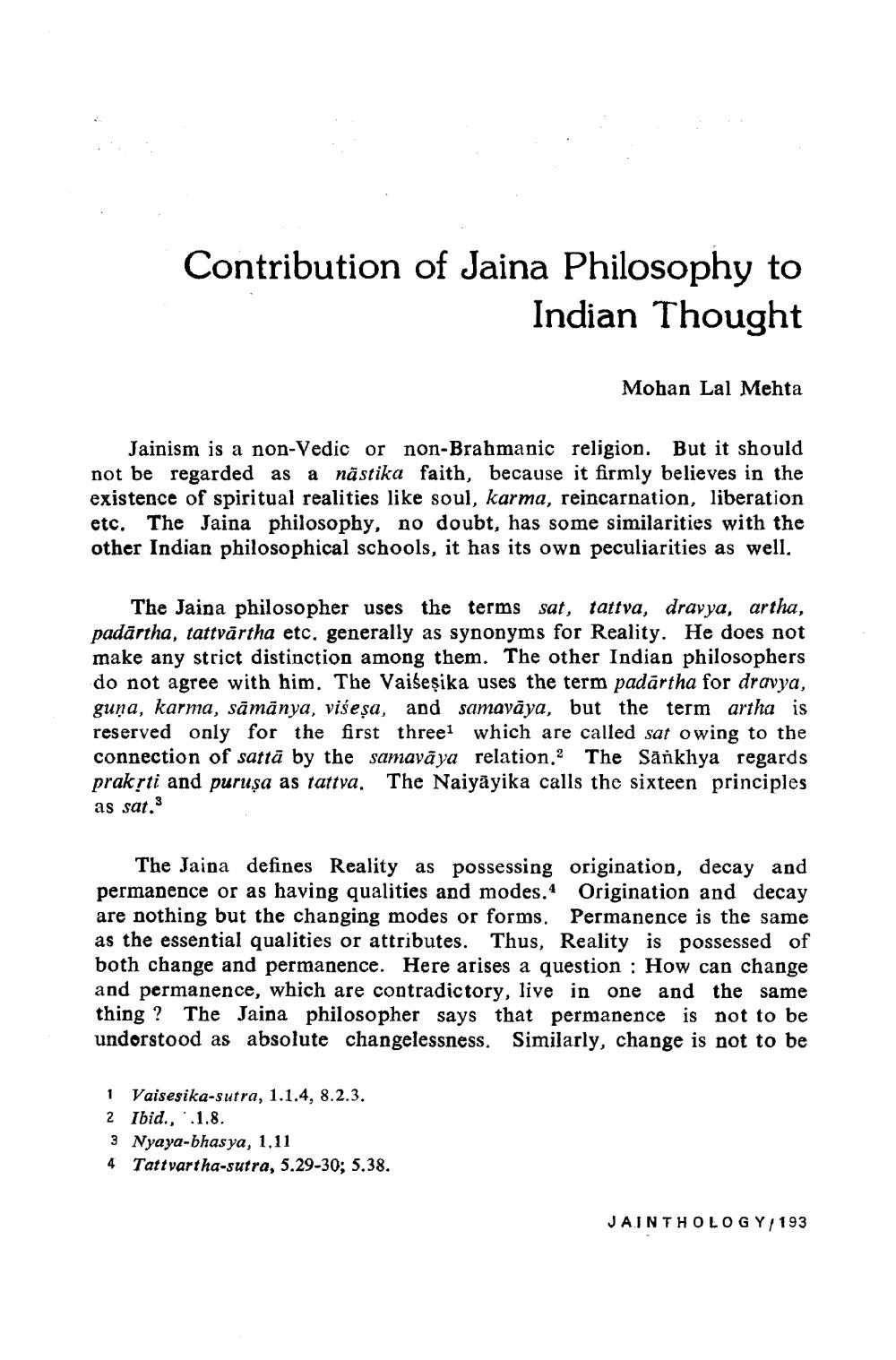________________
Contribution of Jaina Philosophy to
Indian Thought
Mohan Lal Mehta
Jainism is a non-Vedic or non-Brahmanic religion. But it should not be regarded as a năstika faith, because it firmly believes in the existence of spiritual realities like soul, karma, reincarnation, liberation etc. The Jaina philosophy, no doubt, has some similarities with the other Indian philosophical schools, it has its own peculiarities as well.
The Jaina philosopher uses the terms sat, tattva, dravya, artha, padārtha, tattvārtha etc. generally as synonyms for Reality. He does not make any strict distinction among them. The other Indian philosophers do not agree with him. The Vaibeşika uses the term padārtha for dravya, guna, karma, sāmānya, višesa, and samavāya, but the term artha is reserved only for the first threel which are called sat owing to the connection of sattā by the samavāya relation. The Sankhya regards prakrti and puruşa as tattva. The Naiyāyika calls the sixteen principles as sat.
The Jaina defines Reality as possessing origination, decay and permanence or as having qualities and modes.4 Origination and decay are nothing but the changing modes or forms. Permanence is the same as the essential qualities or attributes. Thus, Reality is possessed of both change and permanence. Here arises a question : How can change and permanence, which are contradictory, live in one and the same thing? The Jaina philosopher says that permanence is not to be undorstood as absolute changelessness. Similarly, change is not to be
1 Vaisesika-sutra, 1.1.4, 8.2.3. 2 Ibid., .1.8. 3 Nyaya-bhasya, 1.11 4 Tattvartha-sutra, 5.29-30; 5.38.
JAINTHOLOGY/193




